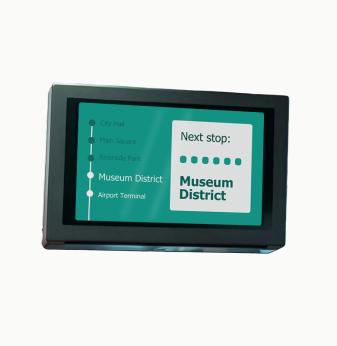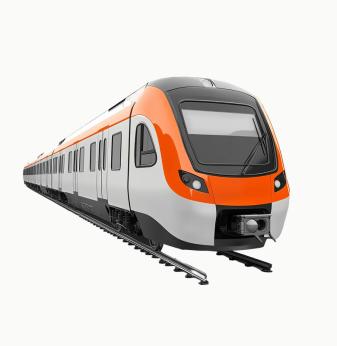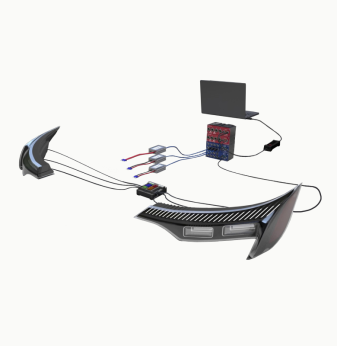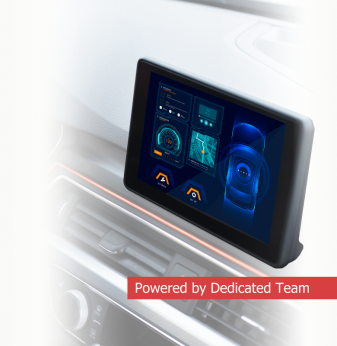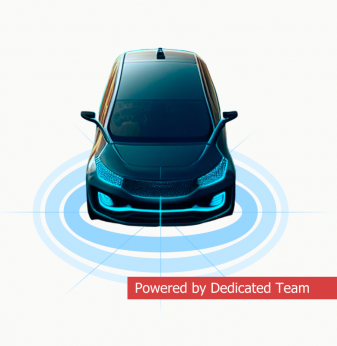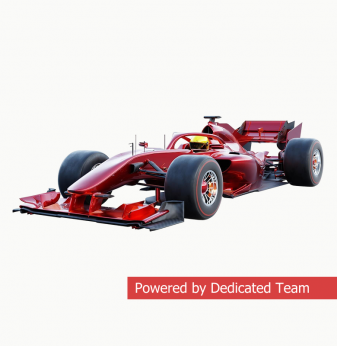IoT Applications in Agricultural Machinery: Real-Time Monitoring and Control
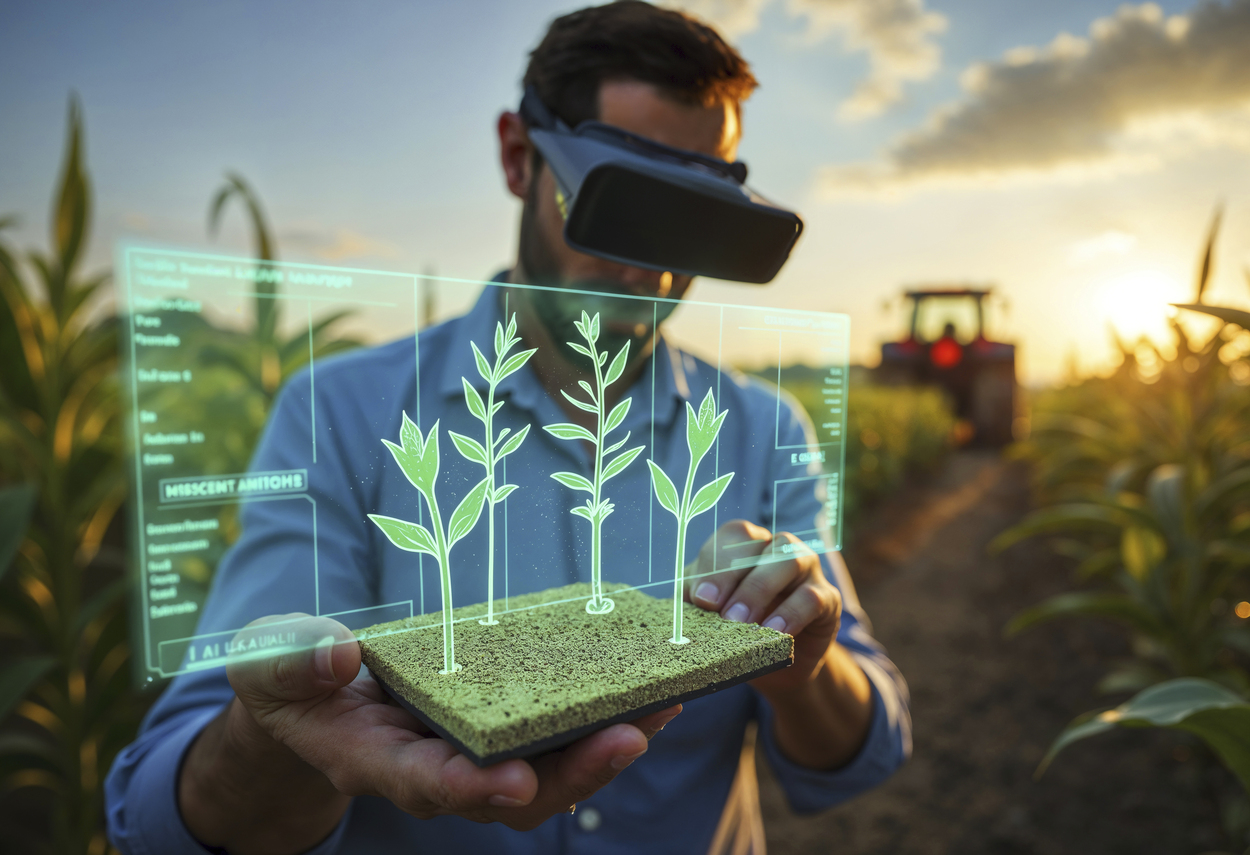
The agriculture industry is witnessing an exciting technological evolution thanks to IoT (Internet of Things). Today, IoT isn't just a buzzword—it's changing how farmers operate machinery, manage resources, and increase productivity. The integration of real-time monitoring and control into farming equipment is helping farmers make smarter decisions faster than ever before.
In this article, we'll explore how IoT applications are reshaping agricultural machinery, providing practical examples, detailing essential technologies, and highlighting the benefits and challenges.
Why IoT in Agricultural Machinery Matters
Farming has always been about managing uncertainties—unpredictable weather, changing soil conditions, and mechanical breakdowns. IoT technology brings predictability into this environment. It lets farmers monitor machinery in real-time, identify issues before they escalate, and maintain consistent productivity throughout the farming season.
IoT-enabled agricultural machinery gives farmers a clear picture of equipment performance, soil conditions, and environmental factors, significantly enhancing farming operations.
Key IoT Technologies Transforming Agriculture
IoT Sensors and Connectivity
IoT sensors installed on machinery measure and transmit critical data in real-time, including equipment performance, fuel efficiency, temperature, moisture levels, and crop health. Enhanced connectivity solutions like 4G, LTE, or LoRaWAN networks ensure data is delivered reliably and promptly to cloud platforms for analysis.
Cloud-Based Data Analysis
Cloud computing platforms process and analyze the collected sensor data, providing actionable insights. Farmers can monitor their equipment remotely, receiving alerts when something requires immediate attention.
Automation and Remote Control
Advanced IoT solutions enable remote control of agricultural machinery. Farmers can manage their equipment from anywhere, making adjustments on-the-fly based on real-time conditions.
At Promwad, we have experience designing comprehensive IoT solutions for agriculture, from embedded systems to complete integration.
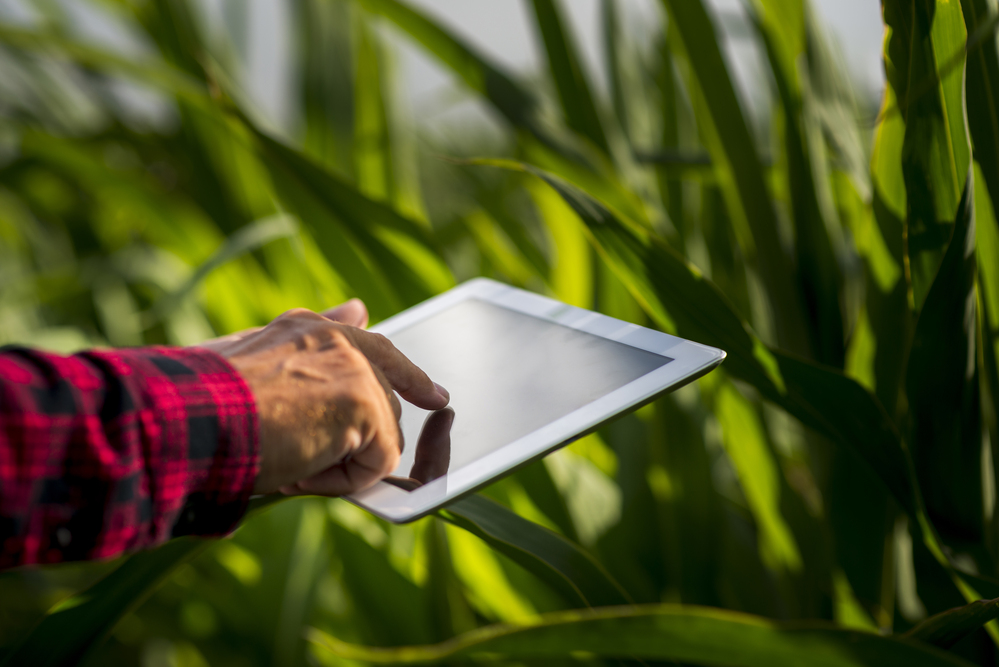
Practical Applications of IoT in Agriculture
IoT technology provides numerous practical solutions for agriculture:
- Precision Farming: Optimized use of resources such as water, fertilizers, and fuel based on precise sensor data.
Precision farming stops being an abstract promise when machinery can actually adjust itself in the field—based on live conditions, not yesterday’s plan. That’s the idea behind our seed drill control system for precision farming: a modular, ISOBUS-ready architecture where an ECU continuously processes sensor data and automatically fine-tunes seeding depth and rate, while telematics enables remote diagnostics and over-the-air updates. For farmers, it means tighter control over inputs, less seed waste, and more consistent results across variable soil, moisture, and terrain—exactly the kind of real-time monitoring and control IoT is meant to deliver.
- Predictive Maintenance: Early detection of machinery issues reduces downtime and lowers maintenance costs.
- Crop Health Monitoring: Constant assessment of soil and plant health helps improve crop yields.
Real-World Examples
Many agricultural companies already benefit from IoT integration:
- John Deere: The company integrates IoT sensors and analytics to improve machine reliability, optimize farm operations, and enhance productivity.
- CNH Industrial: Uses IoT to enable real-time equipment monitoring and predictive maintenance, significantly reducing machinery downtime.
Essential IoT Applications in Agricultural Machinery
| IoT Application | Function |
| Real-time machinery tracking | Continuous monitoring of equipment location and usage |
| Predictive maintenance | Early detection and prevention of breakdowns |
| Precision farming | Optimal resource management based on sensor data |
Benefits of Implementing IoT in Agriculture
IoT integration into agricultural machinery offers clear advantages:
- Increased Efficiency: Real-time data optimizes machinery use, saving time and fuel.
- Lower Costs: Predictive maintenance and precise resource allocation reduce overall expenses.
- Improved Productivity: Constant monitoring and control enable quicker decisions and improved crop yields.
Promwad specializes in developing customized IoT solutions that help farmers gain these benefits.
Challenges in IoT Integration
While IoT technologies offer substantial advantages, integrating them into existing agricultural machinery has its challenges:
High Initial Costs
The upfront investment can be significant, although the long-term benefits outweigh initial costs.
Connectivity Issues
Rural farms may face challenges with consistent internet connectivity, essential for real-time IoT functionality.
Data Security
Securing IoT networks and sensitive agricultural data from cyber threats is critical.
At Promwad, we address these challenges by developing robust, cost-effective IoT solutions tailored to the unique requirements of agricultural operators.
Future of IoT in Agriculture
The future of IoT in agricultural machinery looks promising, with emerging technologies set to further enhance capabilities:
- Autonomous machinery capable of fully independent operations.
- Advanced AI analytics providing deeper insights into machinery performance and crop health.
- Enhanced integration with farm management software and digital agriculture platforms.
Conclusion
IoT applications in agricultural machinery represent a substantial advancement, providing farmers with unprecedented control and monitoring capabilities. Real-time data improves decision-making, optimizes resources, and significantly boosts farm efficiency and productivity.
Promwad is committed to supporting the agricultural industry by developing innovative IoT solutions tailored to the unique needs of modern farming operations. To learn more about how we can help transform your agricultural machinery with IoT technology, visit promwad.com or contact our specialists directly.
References:

